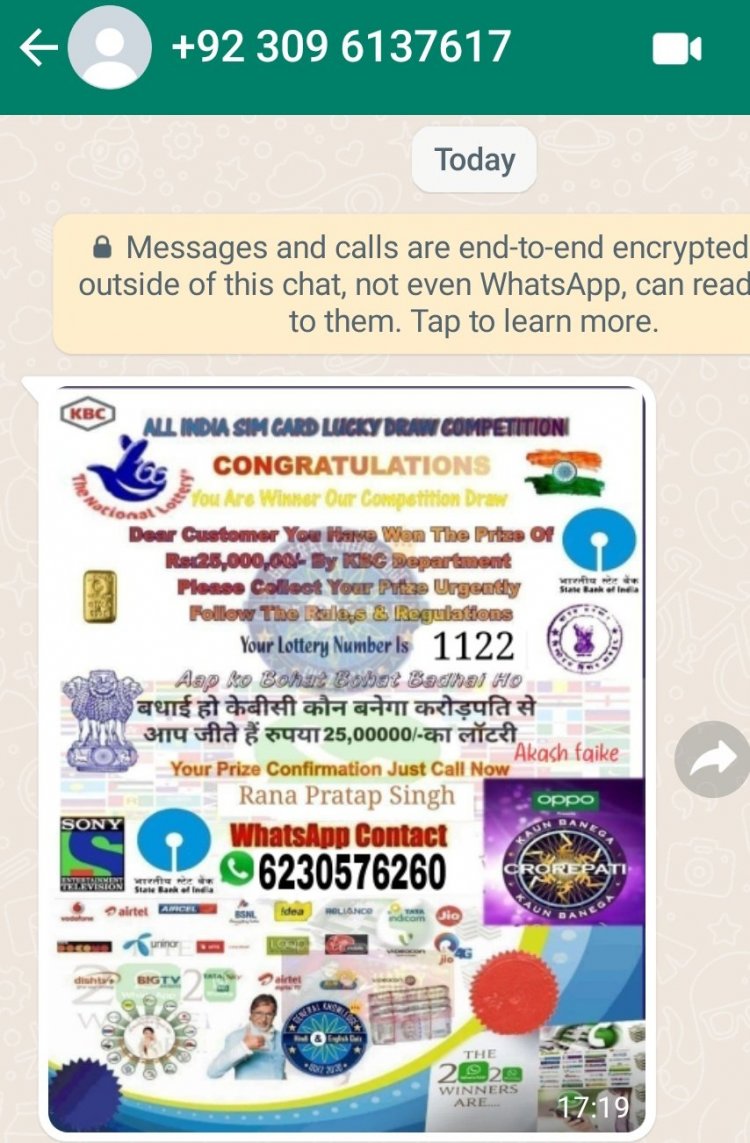WhatsApp KBC Scam Comes back With Rs 25 Lakh Prize, and Here's Why You Should Be Careful
This popular WhatsApp message has made a comeback this year, and you won't believe it.

In India, WhatsApp has served as a hub for many cyber scams. The KBC Jio Lucky draw scam is a popular scam that has been making the rounds on the popular social messaging app. Every year, it is reported that users have been duped out of a large sum by claiming to have won Rs 25 lakh in a lucky draw. This popular WhatsApp scam has returned this year.
No such lucky draw competition is being run by the team of KBC.
— The Logical Indian (@LogicalIndians) May 12, 2022
Since #WhatsApp messages are end-to-end encrypted. That's why fraudsters use it, so that the police cannot reach them. Delhi Police also refuted the viral claim earlier as well. #factcheck #KBC #scam #fraud #fake pic.twitter.com/zm7dWJKFUJ
Several users took to social media platforms to complain about receiving such scam messages recently and to warn other users not to believe such messages. The Delhi Police Cybercrime Department has also published a blog that assists users in distinguishing between a scam and a genuine WhatsApp message.
Also Read: Xiaomi 12S Pro Seen on 3C Certification Site, Expected to Launch Soon
Hey, SonyTV team I want you to look towards scam going on your One of the most loved show KBC. They are contacting us through WhatsApp which is very dangerous because personal no. is the most closest thing of contacting someone. It happened with me 2nd time. @SonyTV @Cyberdost pic.twitter.com/1wt93mmM9R
— Ansh Yadav (@anshydv8) June 6, 2022
What does the WhatsApp KBC Scam Message Say?
According to the WhatsApp KBC message scam, the user has won a cash prize of Rs 25 lakh and must call the person back. Along with the message, the scammers send a voice message in Amitabh Bachchan's voice or an image with photos of KBC host Amitabh Bachchan and India's Prime Minister Narendra Modi. The image also includes the Sony LIV and Jio logos, lending credibility to the message.
Also Read: Telegram May Add A Premium Subscription Tier for Users:...

The majority of users have received these messages with numbers beginning with +92, which is Pakistan's ISD code. When you call them, you will be asked to pay a processing fee in order to receive your prize money. Once the money is paid, the scammer will block you and delete your phone number.
Be Aware of this WhatsApp Scam
Also Read: WhatsApp Support for iOS 10, iOS 11 Devices Will End Soon
The WhatsApp KBC Jio message is an old scam that circulates every year. The Cybercrime Department has also advised users not to believe such messages and to avoid making any mistakes that could cost them money. As a result, we ask that you disregard such messages.
Remember not to give the scammers your mobile number, email address, home address, bank details, or UPI ID. Checking the grammatical messages in the text is one way to determine whether these messages are genuine or not. These con artists frequently make grammatical errors that are easily detected.

 Mike2051
Mike2051 








